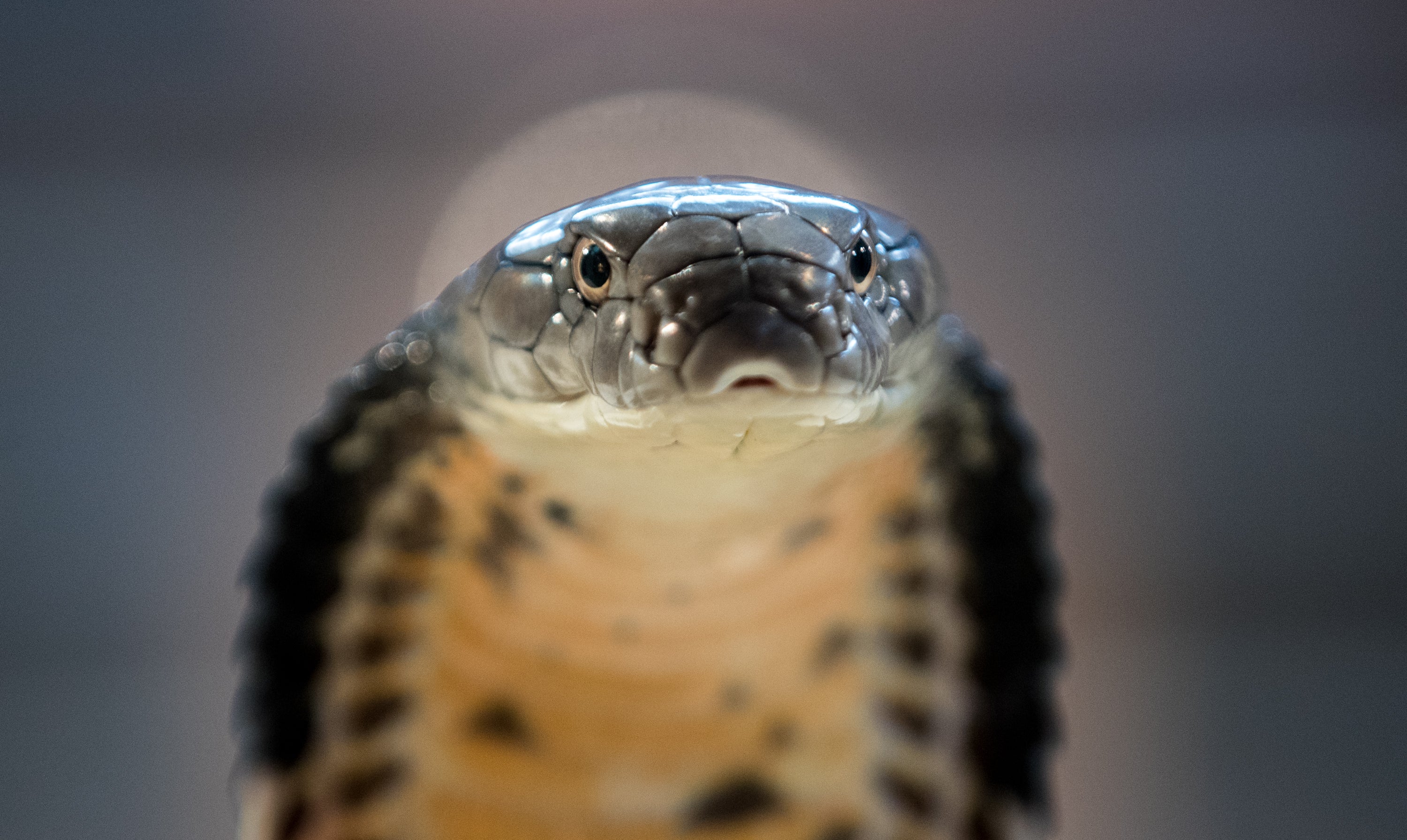Scientists discover new antidote for cobra bites that could save thousands of lives
The World Health Organisation identified snakebite as a priority in its programme for tackling neglected tropical diseases

Your support helps us to tell the story
From reproductive rights to climate change to Big Tech, The Independent is on the ground when the story is developing. Whether it's investigating the financials of Elon Musk's pro-Trump PAC or producing our latest documentary, 'The A Word', which shines a light on the American women fighting for reproductive rights, we know how important it is to parse out the facts from the messaging.
At such a critical moment in US history, we need reporters on the ground. Your donation allows us to keep sending journalists to speak to both sides of the story.
The Independent is trusted by Americans across the entire political spectrum. And unlike many other quality news outlets, we choose not to lock Americans out of our reporting and analysis with paywalls. We believe quality journalism should be available to everyone, paid for by those who can afford it.
Your support makes all the difference.Researchers have discovered a new antidote for cobra bites.
The snakes kill thousands of people a year across and around 100,000 suffer the death of body tissue and cells caused by the venom, which can lead to amputation.
Now researchers have discovered a common blood thinner can be used as an antidote.
The drug heparin can be repurposed as an inexpensive antidote for the snake venom, “drastically” reducing the number of injuries caused by bites, according to the findings.
Current antivenom treatment is expensive and does not effectively treat the necrosis of the flesh where the bite occurs.
Professor Greg Neely, a corresponding author of the study from the Charles Perkins Centre and Faculty of Science at the University of Sydney, said: “Our discovery could drastically reduce the terrible injuries from necrosis caused by cobra bites – and it might also slow the venom, which could improve survival rates.”
Using the gene-editing technology Crispr to identify ways to block cobra venom, scientists repurposed heparin and related drugs and showed they can stop the necrosis caused by cobra bites.

PhD student and lead author Tian Du, also from the University of Sydney, said: “Heparin is inexpensive, ubiquitous and a World Health Organisation-listed Essential Medicine.
“After successful human trials, it could be rolled out relatively quickly to become a cheap, safe and effective drug for treating cobra bites.”
The researchers found that, unlike current antivenoms for cobra bites, which are 19th century technologies, the heparin drugs (herparinoids) act as a decoy antidote.
By flooding the bite site with decoy heparin, the antidote can bind to and neutralise the toxins within the venom that cause tissue damage.
Joint corresponding author Professor Nicholas Casewell, head of the Centre for Snakebite Research and Interventions at Liverpool School of Tropical Medicine, said: “Snakebites remain the deadliest of the neglected tropical diseases, with its burden landing overwhelmingly on rural communities in low- and middle-income countries.
“Our findings are exciting because current antivenoms are largely ineffective against severe local envenoming, which involves painful progressive swelling, blistering and/or tissue necrosis around the bite site.
“This can lead to loss of limb function, amputation and lifelong disability.”
The World Health Organisation has identified snakebite as a priority in its programme for tackling neglected tropical diseases, and announced a goal of reducing the global burden of snakebite in half by 2030.
Prof Neely said: “That target is just five years away now. We hope that the new cobra antidote we found can assist in the global fight to reduce death and injury from snakebite in some of the world’s poorest communities.”
– The research, from scientists based in Australia, Canada, Costa Rica and the UK, is published in the Science Translational Medicine journal.
Join our commenting forum
Join thought-provoking conversations, follow other Independent readers and see their replies
0Comments